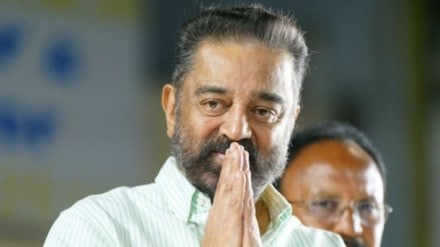The Karnataka High Court delivered strong criticism of actor Kamal Haasan during a hearing on his petition seeking directives to ensure the release and screening of his upcoming film Thug Life in the state.
Justice M. Nagaprasanna questioned Haasan’s unwillingness to apologise for a controversial statement, noting that it had offended public sentiment. “No citizen has the right to hurt sentiments,” the judge remarked. He further emphasised the deep emotional and cultural significance of water, land and language — “Jala, Nila, Bashe” — stating, “The division of this country was along linguistic lines.”
Haasan filed the petition following intense backlash over his recent controversial remark, “Tamil gave birth to Kannada.” The statement drew sharp criticism from political leaders and triggered protests by pro-Kannada groups across Karnataka.
Court challenges Haasan’s responsibility as a public figure
The judge sharply criticised the actor’s stance and remarks, questioning his responsibility as a public figure. “No language can be born out of another. Where is the evidence to support this claim? And what has resulted? Disharmony. And what have the people of Karnataka asked for? Simply an apology.”
Justice Nagaprasanna further challenged Haasan’s position, stating, “The circumstances were created by Kamal Haasan himself, yet he refuses to apologise? You have undermined the sentiments of the people of Karnataka… On what basis? Are you a historian? Or a linguist?”
Thug Life, scheduled to release on June 5, has come under scrutiny following Haasan’s comments at the film’s audio launch in Chennai on May 24.
Film’s producers claim comment taken out of context
In the writ petition filed by Raaj Kamal Films International before the high court, it was stated that the comment was made solely to express cultural solidarity and had been taken out of context. The petition also expressed concerns that the police might not provide adequate protection to those involved with the movie or its audience upon release.
The petition argued that the film had secured the necessary certifications, and any ban on its release would violate the fundamental right to “carry on…business” under Article 19 of the Constitution, as well as the audience’s right to view the film. With certification from the Central Board of Film Certification (CBFC) in hand, the petitioner asserted the right to peacefully exhibit the movie, warning that any attempts to block its release would be unlawful and undermine the authority of the CBFC.
